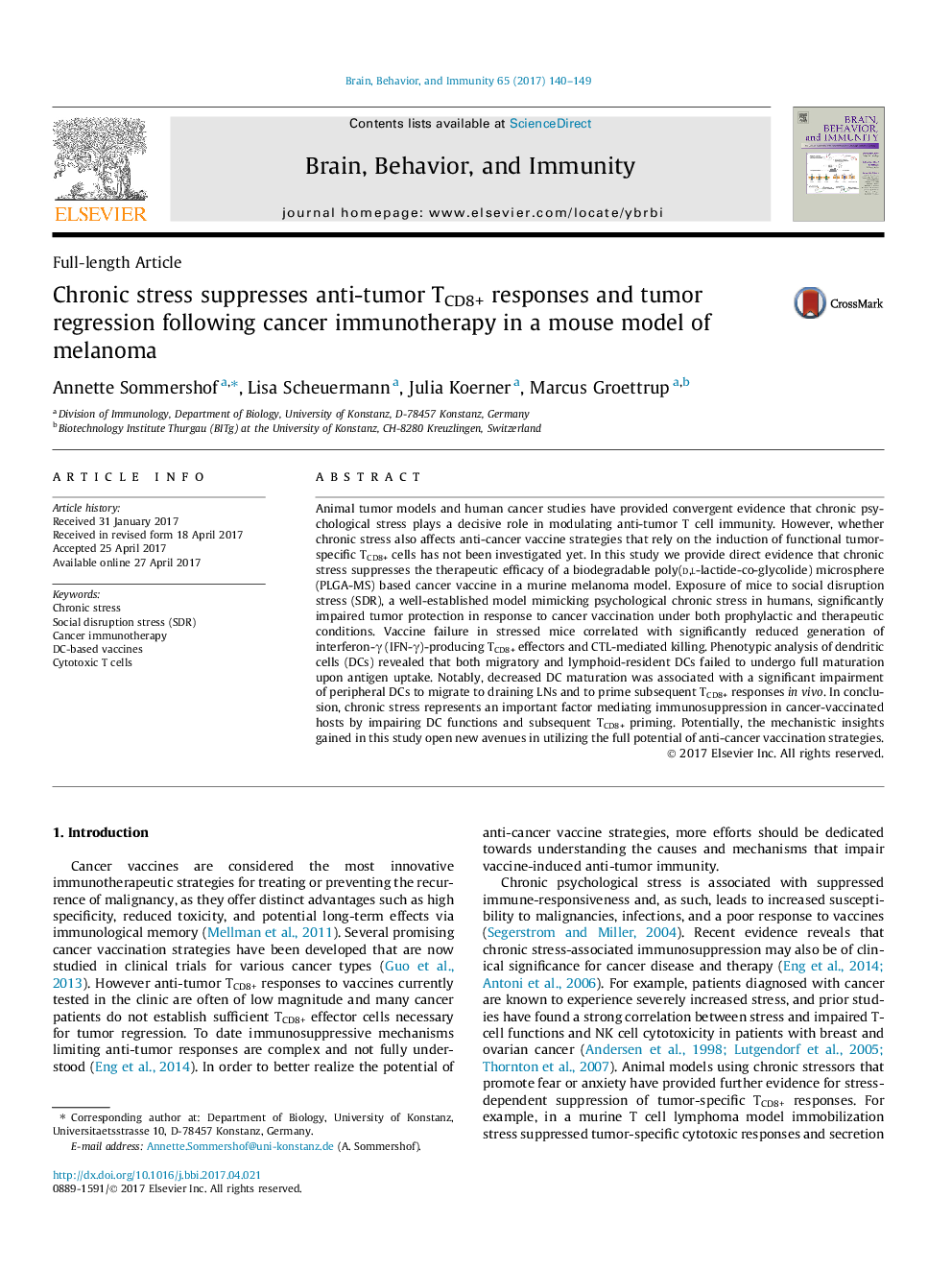| کد مقاله | کد نشریه | سال انتشار | مقاله انگلیسی | نسخه تمام متن |
|---|---|---|---|---|
| 5040588 | 1473902 | 2017 | 10 صفحه PDF | دانلود رایگان |

- Chronic stress represents an important factor mediating immunosuppression in cancer-vaccinated hosts.
- Stressed mice show impaired vaccine-specific TCD8+ generation and tumor protection.
- Impaired dendritic cell dysfunction and loss of subsequent TCD8+ priming are major mechanisms.
Animal tumor models and human cancer studies have provided convergent evidence that chronic psychological stress plays a decisive role in modulating anti-tumor T cell immunity. However, whether chronic stress also affects anti-cancer vaccine strategies that rely on the induction of functional tumor-specific TCD8+ cells has not been investigated yet. In this study we provide direct evidence that chronic stress suppresses the therapeutic efficacy of a biodegradable poly(d,l-lactide-co-glycolide) microsphere (PLGA-MS) based cancer vaccine in a murine melanoma model. Exposure of mice to social disruption stress (SDR), a well-established model mimicking psychological chronic stress in humans, significantly impaired tumor protection in response to cancer vaccination under both prophylactic and therapeutic conditions. Vaccine failure in stressed mice correlated with significantly reduced generation of interferon-γ (IFN-γ)-producing TCD8+ effectors and CTL-mediated killing. Phenotypic analysis of dendritic cells (DCs) revealed that both migratory and lymphoid-resident DCs failed to undergo full maturation upon antigen uptake. Notably, decreased DC maturation was associated with a significant impairment of peripheral DCs to migrate to draining LNs and to prime subsequent TCD8+ responses in vivo. In conclusion, chronic stress represents an important factor mediating immunosuppression in cancer-vaccinated hosts by impairing DC functions and subsequent TCD8+ priming. Potentially, the mechanistic insights gained in this study open new avenues in utilizing the full potential of anti-cancer vaccination strategies.
Journal: Brain, Behavior, and Immunity - Volume 65, October 2017, Pages 140-149